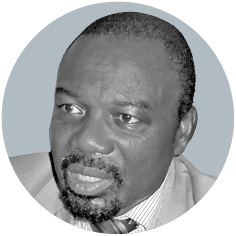German development agencies
Vladimir Antwi-Danso’s view on reform
The question of Aid and its effectiveness, where developing countries are concerned has been the focus of intense debate in the last decade. The Aid question has arisen in respect of three main dimensions
• Why give Aid?
• Does Aid Work?
• If it does, how effective should Aid be made to work?
The debate around the first question is premised on the efficiency versus equity argument. In the opinion of the Left Aid is obligatory on the part of the North (especially the West) to atone for the exploitation of the Developing Countries during and even after colonization. The argument goes further to state that the North has an obligation to aid the South since the latter needed such to kick-start development. The Dependecia School of thought is the greatest proponent of this position. The Right, on the other hand, talks about the inefficiency in management of developing economies and that Aid comes in handy to ensure efficiency. But the Structuralists, including especially Graham Bird, have noted that the developing countries have a proclivity to the dual gap syndrome (the budget gap and the foreign exchange gap), and Aid is given to assist in bridging this gap. Without Aid, and with the pervasiveness of the dual gap syndrome, no development would be forthcoming in the developing countries. This latest approach seems to be the most [plausible, why Aid is (and must be ) given.
A plethora of works exist on whether Aid works or not. Among them, the most damning has been the latest book Dead Aid by Dambisha Moyo. In almost all the writings, Aid is said to:
• Distort the economy
• Prop up dictatorship
• Encourage corruption
• Hurt the poor
• Serve the donor interest
• (be) fungible
On the other hand, others (like Joseph Stiglitz, Jeffery Sachs etc) have argued that Aid must be made to work because it is an indispensable variable in the development matrix of developing countries. This is what has generated a new wave of debate on Aid Effectiveness, the culmination of which were the Paris Declaration of 2005 and the Accra Agenda for Action, 2008.
Since Aid is now intrinsically linked with a country’s development, donor agencies must direct aid to support country programmes that are part of the overall development agenda. For example of late, most developing countries have been made to tailor their development agenda on poverty reduction (pro-poor development agenda). In that sense, the country’s overall development blue-print is framed in Poverty-Reduction Strategy documents, which invariably is designed to fulfill the Millennium development Goals. In Ghana for example, the overall blueprint for development was encapsulated in the Ghana Poverty Reduction Strategy (GPRS -II). It was from this that the Ghana Trade Policy was formulated. Ghana’s Trade Policy (GTP) was therefore, developed from within a broad development context, propped by two basic strategies. The Ghana Poverty Reduction Strategy (GPRS) II and the Private Sector Development Strategy (PSDS) became complementary to each other. The GPRS itself is pivoted on the knuckle of a tripod of
• ensuring accelerated growth through private sector development
• vigorous human resource development, and
• sustained good governance
The private-sector led nature of the strategy and the results there-from achieved lend credence to the fact that poverty is successfully fought where the private sector has thrived. Donors may therefore turn much attention to the private sector through credit assistance, technology transfer, managerial/cadre training and linking successful businesses to allied partners outside.
Governments have been trying to score political marks with the Millennium Development Goals. There are several local and international NGOs assisting in the attainment of the ideals of the MDGs. One would want to see coordination of efforts instead of duplication.
Both the Paris and Accra declarations stress the importance of enhancing government capacities. Unfortunately, most donor funds are spent more on equipment and conferences than actual institutional and structural renewal. In some cases the capacity to handle funds may not be available. Most government agencies are understaffed, poorly resourced, and lack the competence for comprehending and managing donor resources. It is in these respects that donor agencies need to help strengthen government capacities.
It is highly appreciated that beginning from the latter part of the 1990s, the International Finance Institutions (IFIs) have demanded good and responsible governance as prerequisite for accessing loans and/or grants by developing countries. But most governments have problems in this respect. Most donor agencies on the other hand focus on elections as if frequent elections, in and by themselves, engender democracy and/or good governance. Good governance is more seen in strong institutions (ie., in capacity and autonomy) and the vibrancy of civil society organizations. The best support of donor agencies is in assisting in strengthening institutions of governance and civil society organizations. When a country has a docile CSOs and weak institutions of state who are at the beck and call of the incumbent or are belted under the whims of the ruling elite, good governance is sacrificed.
The German governmental agencies of GTZ and InWEnt, as well as DED have been known to assist Ghana in various aspects of development in Ghana. GTZ particularly has assisted in what they have said are their priority areas: agriculture, employment-oriented private sector promotion, and good governance. InWent is noted for its international Human resource Development, while DED Ghana promotes complex reforms and change processes. Its corporate objective is to improve people’s living conditions on a sustainable basis and therefore has been assisting in several areas, targeting especially the youth between the ages of 18 and 23 years who are interested in cosmopolitan and development policies. They are very much noted in Ghana in the areas of Children and Youth Service, Health, Education and Democratic support. These I wished would last with the above organizations even if they are to be merged.
